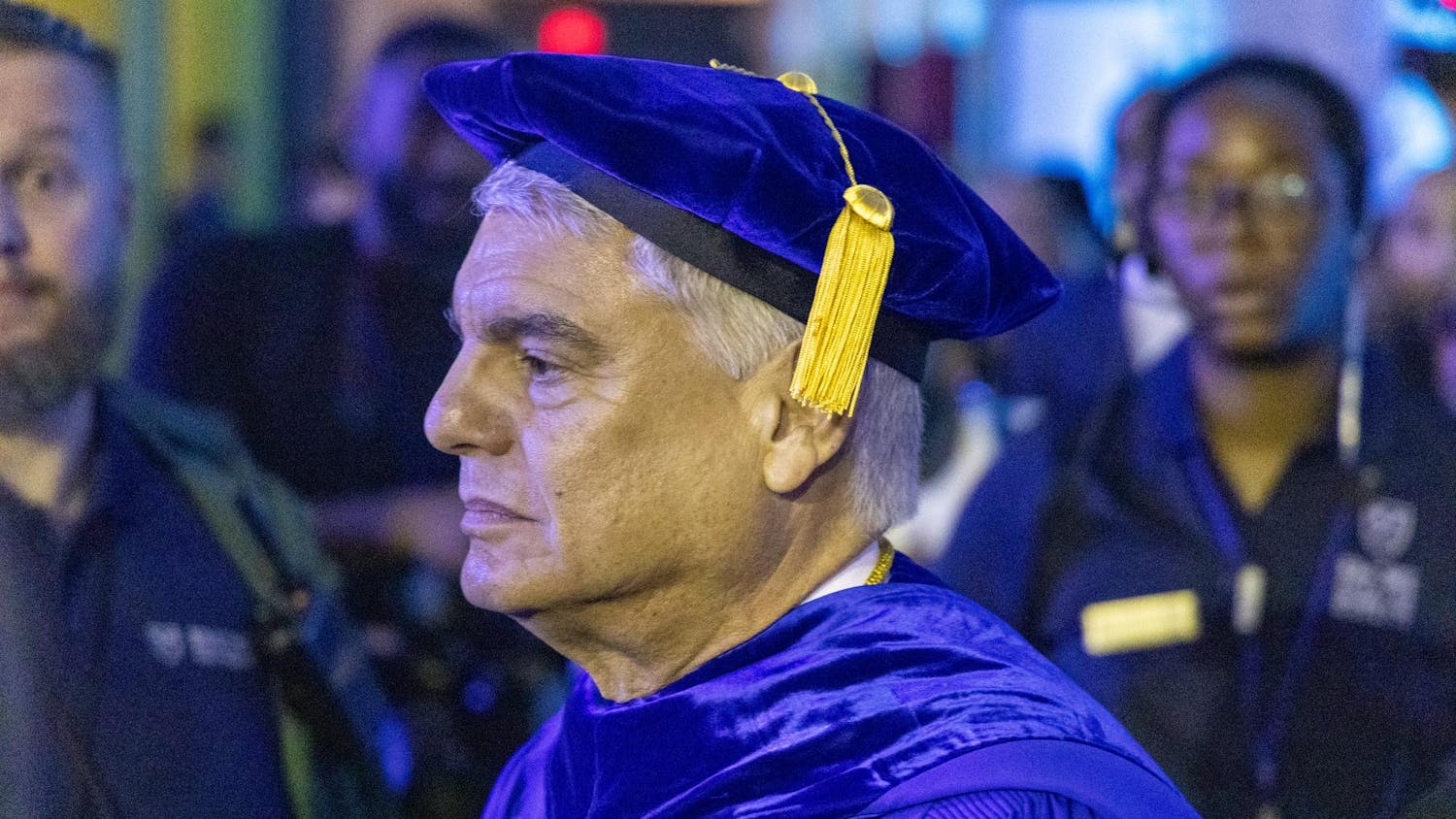
On Jan. 25, singer Neil Young released a letter demanding Spotify take down Joe Rogan’s podcast, The Joe Rogan Experience, over misinformation concerns about the COVID-19 vaccine. Young is not alone; hundreds of scientists, professors and public health experts have demanded the removal of Rogan’s podcast. When Spotify refused to comply with these demands, Young removed his music from the platform. Artists like Joni Mitchell and Nils Lofgren and podcaster Bréné Brown followed suit not long after.
Rogan has since apologized and committed to including more guests on his podcast that would balance out his controversial or contrarian guests. In response to the controversy, Spotify is adding content advisory to podcasts discussing COVID-19 that directs listeners to the platform's COVID-19 information hub.
In an ever expanding era of misinformation, social media giants have the obligation to provide users with a transparent, constructive and safe platform. Beyond adding content advisories, however, episodes with misinformation should be removed, and artists who continuously violate Spotify’s new policies should be booted off the site. To prove their commitment to stymying misinformation, Spotify should implement routine fact-checking of podcast episodes and playing a more active role in the information allowed to permeate through their services. Additionally, consumers must acknowledge that our media consumption can play a role in the spread of misinformation.
The impetus of the Rogan controversy emerged following his conversation with virologist Robert Malone, known for belittling the efficacy and importance of the COVID-19 vaccine. The controversy only adds to the increased polarization on science-based issues by undermining the public’s inherent trust in public health guidelines.
On his podcast, Rogan has suggested the vaccines contain microchips, that those with a prior infection are at higher risk and that mRNA vaccines are a form of gene therapy. As a matter of fact, no FDA authorized vaccine contains a microchip or alters genes. Anyone eligible for the vaccine will increase their immunity, not decrease it. Rogan’s spread of misinformation about COVID-19 and vaccines is harmful to the broader health of millions affected by the pandemic. But even more disheartening is Spotify's complacency as a vehicle for fake news. By protesting, Young reminds us that while companies have the right to choose whom they profit from,, they shouldn’t profit from potentially fatal misinformation.
In response to Young’s protest, Spotify released a statement about its content policies saying that they removed over 20,000 podcast episodes related to COVID-19 misinformation. The platform has also announced new content advisory for all episodes covering information about COVID-19. Even if this is one step in the right direction, it is not enough to hold Rogan accountable and eliminate the harm done to those who were misinformed. Their statements ring hollow and their inaction to curb misinformation proves that their previous content policies are insufficient.
Thus, Spotify has made its choice, and we as consumers must force them to make another. For starters, the general public and artists alike must implore Spotify to fact check new podcast episodes and monitor new artists to vet the accuracy of their information. Include disclaimers on podcasts episodes that spread COVID-19 misinformation detrimental to public health is not enough, consistent checking on Spotify’s part is crucial to ensuring scientific accuracy. Additionally, Spotify could fully implement their policy against COVID-19 misinformation against Rogan by striking his episodes containing debunked vaccine claims. Keeping episodes without misinformation would show that Spotify respects free speech, and that there is a place for non-dangerous fringe ideological discussion on the platform.
Rogan’s actions do not need to be addressed simply because he is on the right, but because they stoke anti-vaccine sentiments that have kept us from better containing this pandemic. In that realm, Spotify could be deemed a pariah for failing to sufficiently curb dangerous misinformation by enabling content creators that jeopardize millions of lives through anti-vaccine skepticism.
Given Rogan’s massive audience of an average of 11 million people, expecting Spotify to act directly against Rogan would be foolish; he would simply move to a different platform and take his listeners with him. To its credit, Spotify’s implementation of a stricter fact-checking policy is a necessary first step. Besides allowing Spotify to stay true to their core values to be sincere and fair, adding these layers of transparency and protective measures will mitigate misinformation about vaccines and save lives.
The above editorial represents the majority opinion of the Wheel’s Editorial Board. The Editorial Board is composed of Rachel Broun, Jake Busch, Kyle Chan-Shue, Sophia Ling, Demetrios Mammas, Daniel Matin, Daniela Parra del Riego Valencia, Sara Perez, Sophia Peyser, Ben Thomas, Chaya Tong and Leah Woldai.







